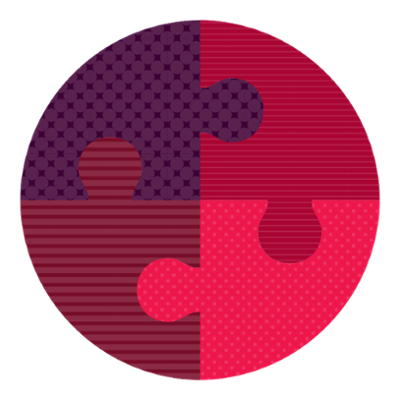The Profiles of Learning for Undergraduate Success were developed as a result of a campuswide effort. A task force was appointed by the executive vice chancellor and chief academic officer in 2017 to review the Principles of Undergraduate Learning (PULs) in the context of general education and the mission and values of IU Indianapolis. The task force was also charged with considering if the PULs and Principles of Co-Curricular Learning could be integrated.
History of the Profiles of Learning for Undergraduate Success

After an extensive process and thorough feedback from many faculty, staff, and students, the PULs were revised to ensure that they continue to represent the knowledge, skills, values, and competencies that faculty help IU Indianapolis students acquire across academic programs. The PULs were renamed the "Profiles of Learning for Undergraduate Success," or "the Profiles," and were approved by the IUPUI (now IU Indianapolis) Faculty Council on May 1, 2018.
Principles of Undergraduate Education
The Principles of Undergraduate Learning (PULs) were developed in 1997 and were approved by the IUPUI (now IU Indianapolis) faculty in 1998. The PULs articulated the student learning outcomes that were common across all undergraduate degree programs at IUPUI (now IU Indianapolis) and that were introduced in general education courses, strengthened within majors, and ultimately demonstrated in culminating capstone experiences.
The PULs were revised in 2007, and the Division of Students Affairs added the Principles of Co-Curricular Learning in 2013.
The PULs were praised by the Association of American Colleges and Universities as being instrumental in shaping the LEAP (Liberal Education and America's Promise) Essential Learning Outcomes.
Description of the PULs
The ability of students to express and interpret information, perform quantitative analysis, and use information resources and technology—the foundational skills necessary for all IU Indianapolis students to succeed.
Core communication and quantitative skills are demonstrated by the student's ability to:
- Express ideas and facts to others effectively in a variety of formats, particularly in written, oral, and visual formats
- Comprehend, interpret, and analyze ideas and facts
- Communicate effectively in a range of settings
- Identify and propose solutions for problems using quantitative tools and reasoning
- Make effective use of information resources and technology
The ability of students to engage in a process of disciplined thinking that informs beliefs and actions. A student who demonstrates critical thinking applies the process of disciplined thinking by remaining open-minded, reconsidering previous beliefs and actions, and adjusting his or her thinking, beliefs, and actions based on new information.
The process of critical thinking begins with the ability of students to remember and understand, but it is truly realized when the student demonstrates the ability to:
- Apply
- Analyze
- Evaluate
- Create knowledge, procedures, processes, or products to discern bias, challenge assumptions, identify consequences, arrive at reasoned conclusions, generate and explore new questions, solve challenging and complex problems, and make informed decisions
The ability of students to use information and concepts from studies in multiple disciplines in their intellectual, professional, and community lives.
Integration and application of knowledge are demonstrated by the student's ability to:
- Enhance their personal lives
- Meet professional standards and competencies
- Further the goals of society
- Work across traditional course and disciplinary boundaries
The ability of students to examine and organize disciplinary ways of knowing and to apply them to specific issues and problems.
Intellectual depth, breadth, and adaptiveness are demonstrated by the student's ability to:
- Show substantial knowledge and understanding of at least one field of study
- Compare and contrast approaches to knowledge in different disciplines
- Modify one's approach to an issue or problem based on the contexts and requirements of particular situations
The ability of students to recognize their own cultural traditions and to understand and appreciate the diversity of the human experience.
Understanding society and culture is demonstrated by the student's ability to:
- Compare and contrast the range of diversity and universality in human history, societies, and ways of life
- Analyze and understand the interconnectedness of global and local communities
- Operate with civility in a complex world
The ability of students to make sound decisions with respect to individual conduct, citizenship, and aesthetics. A sense of values and ethics is demonstrated by the student's ability to:
- Make informed and principled choices and to foresee consequences of these choices
- Explore, understand, and cultivate an appreciation for beauty and art
- Understand ethical principles within diverse cultural, social, environmental, and personal settings

